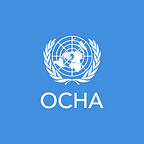Suffering in silence: it’s time to step up action for the Sahel
By: Humanitarian Relief Chief, Martin Griffiths; WFP Executive Director, David Beasley; FAO Director General Qu Donguy; OECD West African Secretariat and CEO NEPAD, Dr. Ibrahim Hassane Mayaki; EU Commissioner for International Partnerships, Jutta Urpilainen, and EU Commissioner for Crisis Management Janez Lenarcic .
This piece was originally published in Le Monde
As the world looks on in dismay at the violence in Ukraine, a slow-burning but deadly crisis continues out of the global spotlight in West Africa’s Sahel region. The Sahel is known for its complex cultural diversity but its people unfortunately share the devastatingly high hunger rates that spike when violence and instability meet climate change and pre-existing vulnerability.
This year, over 40 million people in the Sahel and West Africa, including Cameroon, need emergency food assistance during the June to August lean season — including more than 2.8 million people who will face catastrophic conditions unless they receive immediate help. The majority– 70 per cent — are in the Central Sahel and Lake Chad basin area. In Burkina Faso, Cameroon, Chad, Mali, Mauritania, Niger and Nigeria, more than 2.4 million children will require emergency malnutrition treatment this year.
The war in Ukraine will worsen the suffering of Sahelians by further driving up food and fuel prices. Continued supply disruptions will trigger further price shocks as importing countries scramble for supplies in a tightening market.
To stave off extreme hunger and wider suffering, humanitarian organizations are calling for US$3.8 billion in 2022, to support countries affected by the conflicts in the Central Sahel and Lake Chad Basin. This sounds like a lot but amounts to about $173 per person to keep family members healthy and nourished, protected from violence, with shelter and clean water and access to school.
The Sahel is a region of immense opportunity, with a young, dynamic population eager to contribute to a prosperous future. However, over the past decade, violent extremist groups have exploited weak governance systems and poverty to wrest control, weaken institutions and commit acts of devastating violence. Since 2015, the Central Sahel has experienced a sixteen-fold rise in security incidents and a ten-fold increase in fatalities. These groups foment long-standing tensions such as those between farmers and pastoralists over access to water points. Their violence has caused widespread panic and fear and displaced more than 6 million people, cutting them off from their businesses, crops and pasture for livestock.
Food crises in the Sahel are also rooted in deeper structural issues, including poverty and a lack of access to social safety nets or basic social services.
Now the climate crisis is dealing the Sahel a particularly heavy blow. The region is warming at almost twice the rate of most of the rest of the world according to the Intergovernmental Panel on Climate Change. Repeated and prolonged droughts alternate with severe flooding, lowering crop yields and sometimes destroying any hopes of a harvest.
People in the Sahel need a brighter future. We call for four changes that, if made, could help deliver one.
First Sahelians need appropriate, timely humanitarian assistance, including emergency food and nutrition aid to stave off starvation and illness. None of the UN-coordinated humanitarian response plans across the Sahel have been more than two-thirds funded over the past five years, and three months into 2022, the region’s humanitarian requirements are only 10 per cent funded. Agricultural assistance — key to self-sufficiency — has been neglected, forcing people into aid dependency. And affected government budgets are severely stressed. At this rate, food rations will be cut, health, agriculture and education programmes will be put on hold just when they are most needed.
Second, we already know the lean season will start in June and peak in August or September, that people’s assets will be depleted. Knowing this, we must take anticipatory action now to support families before they fall into catastrophic crisis to protect their assets and dignity. Farmers and herders need help before the lean season to plant their crops and keep their animals healthy. We know acting early saves lives, reduces suffering and cuts costs, so let’s apply this knowledge.
Third, we need freedom of movement to access people in need. Humanitarians must continue to advocate that all fighting parties across the Sahel, including all non-State armed groups, recognize their legal obligation to protect civilians, including by preventing sexual and gender-based violence, and ensuring unimpeded humanitarian access. We must put more effort into negotiating access and building trust and acceptance on the role of principled humanitarian assistance.
Fourth, people need more than food — they need education, training and jobs to realize their potential at home without having to resort to dangerous sea crossings. Sahel’s wider problems can only be met with durable solutions that encompass political and security engagement, financial interventions, and development efforts to shore up basic services, including the transformation of agri-food systems. Governments across the region need support to strengthen their basic services. Governments also need to tackle corruption and other governance weaknesses head-on to deliver on their social contract with their citizens. Humanitarian interventions save lives but are not set up to address root causes over the long term.
These changes will require governments and regional organizations, humanitarian and development agencies, financial institutions and civil society, climate and peace organizations, to each play their part. Together, we can work with the people of the Sahel to change the narrative and deliver a more peaceful, prosperous, and sustainable future, if we choose to do so.
